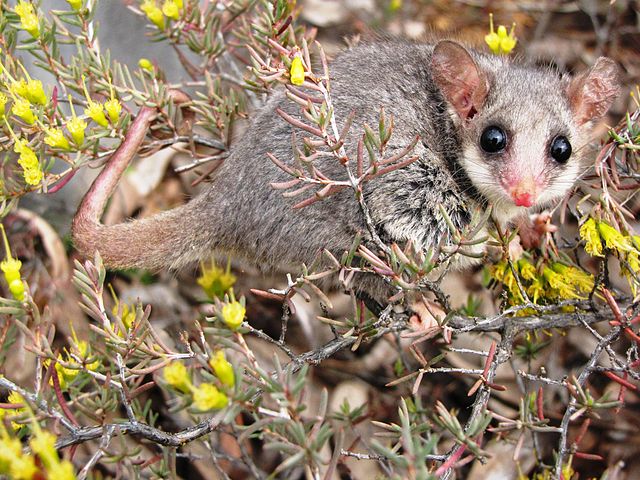Phalangeriformes is a paraphyletic suborder of about 70 species of small to medium-sized arboreal marsupials native to Australia, New Guinea, and Sulawesi. The species are commonly known as possums, gliders, and cuscus. The common name "possum" for various Phalangeriformes species derives from the creatures' resemblance to the opossums of the Americas. However, although opossums are also marsupials, Australasian possums are more closely related to other Australasian marsupials such as kangaroos.
Phalangeriformes
Eastern pygmy possum, Pilliga forest, NSW
Sulawesi bear cuscus
Southern common cuscus, Cape York Peninsula, Queensland
Arboreal locomotion is the locomotion of animals in trees. In habitats in which trees are present, animals have evolved to move in them. Some animals may scale trees only occasionally, but others are exclusively arboreal. The habitats pose numerous mechanical challenges to animals moving through them and lead to a variety of anatomical, behavioral and ecological consequences as well as variations throughout different species. Furthermore, many of these same principles may be applied to climbing without trees, such as on rock piles or mountains.
Leopards are great climbers and can carry their kills up trees to keep them out of reach from scavengers and other predators
Gibbons are very good brachiators because their elongated arms enable them to easily swing and grasp on to branches
The silky anteater uses its prehensile tail as a third arm for stabilization and balance, while its claws help better grasp and climb onto branches
The gecko's toes adhere to surfaces via dry adhesion, to allow them to stay firmly attached to a branch or even a flat wall








